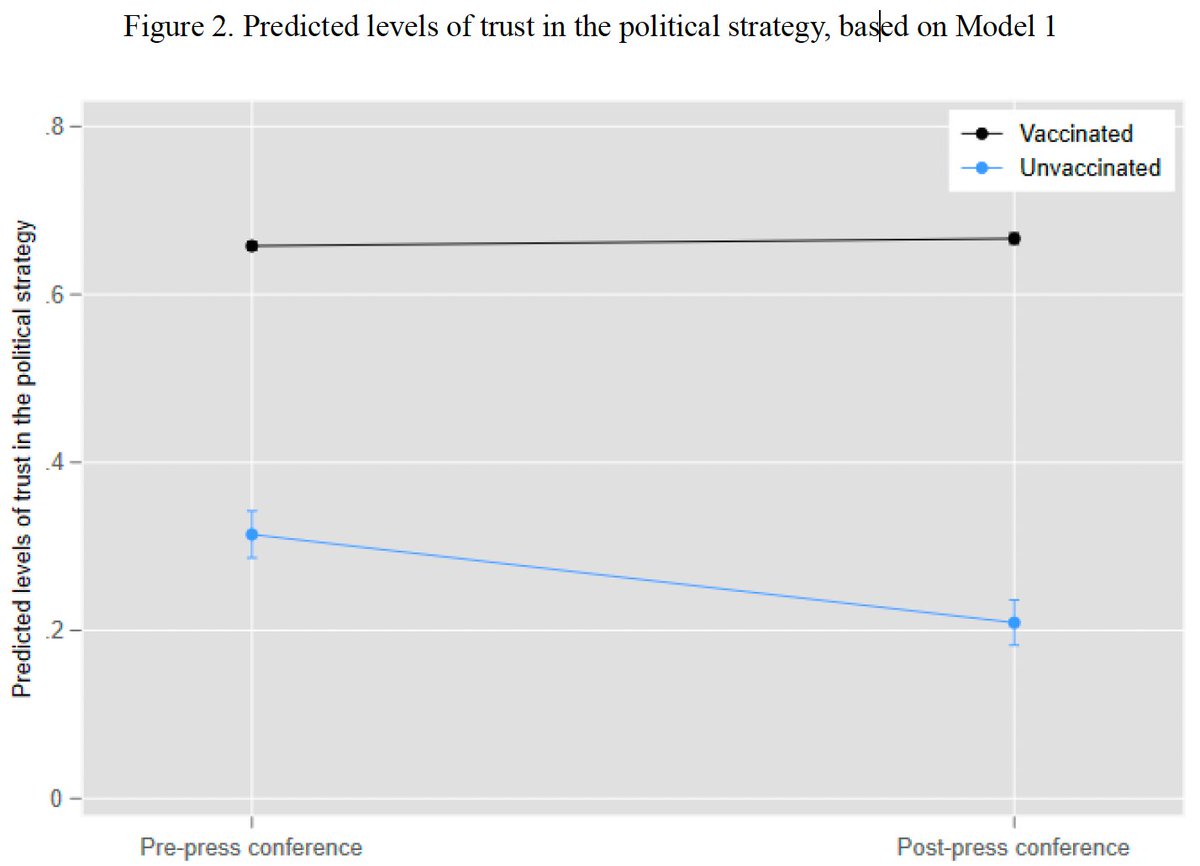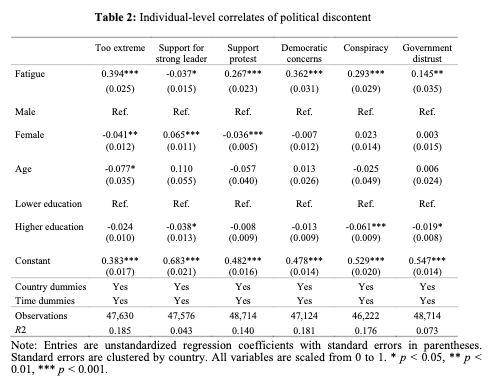
🚨What motivates parents to vaccinate their child against COVID-19?
Evidence from 🇩🇰 shows that parents balance concerns of side-effects & motivations to normalize society & childrens lives: psyarxiv.com/8e49j/
Concern is higher among parents of younger children. 🧵(1/6)
Evidence from 🇩🇰 shows that parents balance concerns of side-effects & motivations to normalize society & childrens lives: psyarxiv.com/8e49j/
Concern is higher among parents of younger children. 🧵(1/6)

We surveyed 791 parents of Danish children aged between 6 and 15, recruited via random population sampling. Overall, vaccination willingness were high (& likely overestimated due to sampling bias) but depended crucially on the age of the child. (2/6) 

To understand the considerations underlying these decisions, we developed a stepwise theoretical model of the vaccination decision and measured a range of considerations. (3/6) 

Beyond child age, dispositions such as trust and knowledge influence the decision. They do so via perceptions of the costs and benefits of the vaccines. Perceptions of the disease and practical barriers matter less for vaccine intentions. (4/6) 

The measure of vaccine costs reflect concerns about side-effects and beliefs about natural immunity being superior. The measure of vaccine benefits reflect beliefs about how vaccines can normalize society and the child's everyday life. (5/6)
To empower parents and help them navigate their dilemmas relating to CVOID-19 vaccinations for their children, health authorities will need to provide transparent and accurate information about these exact features of vaccinations. (6/6)
• • •
Missing some Tweet in this thread? You can try to
force a refresh














